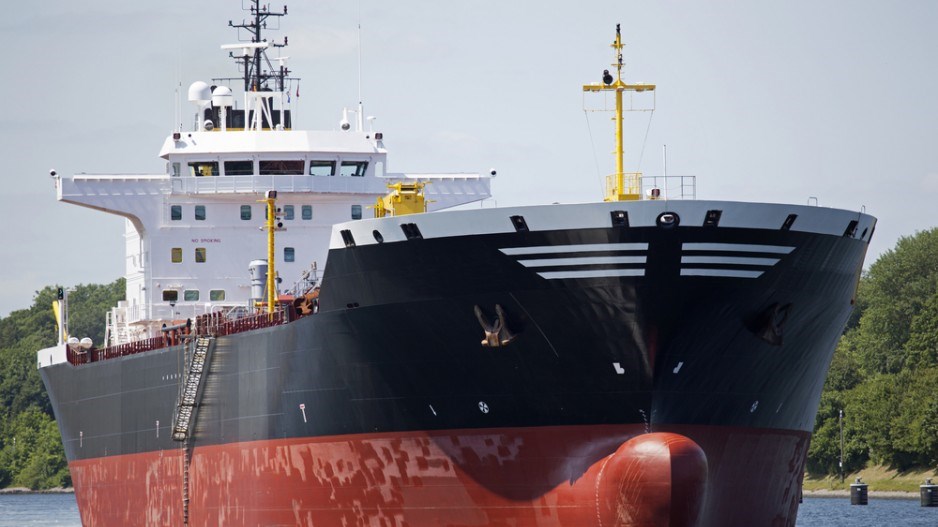The National Energy Board (NEB) is recommending 16 additional measures to the existing 156 conditions attached to the $7.4 billion Trans Mountain pipeline expansion project to address concerns about the impacts on killer whales of increased oil tanker traffic from an expanded Trans Mountain pipeline.
The NEB is once again recommending that the federal government approve the expansion, but with additional measures to mitigate impacts on killer whales, birds and the marine environment in general. They include enhanced noise mitigation measures, additional measures related to oil spill response, and reductions of greenhouse gases from marine vessels.
It also recommends the federal government expedite the creation of a Strait of Georgia national marine conservation area. Some of the recommendations include "offsets" that would reduce the risk of increased noise and vessel strikes by placing restrictions on other forms of marine traffic, including whale watching vessels, in certain defined areas.
In releasing its reconsideration report Friday, February 22, the NEB acknowledged that increasing oil tanker traffic will have adverse impacts on the Southern Resident Killer Whale. The pipeline's expansion would result in up to 34 oil tankers transiting local waters.
"While recommending the project be approved, the NEB report concludes that project-related marine shipping is likely to cause significant adverse environmental effects on the Southern Resident Killer Whale, as well as indigenous cultural use associated with the Southern Resident Killer Whale," said Robert Steedman, the NEB's chief environmental officer.
"The NEB also found the greenhouse gas emissions from project related vessels would likely be significant. And while a credible worst-case spill from the project...is not likely, if it were to occur, the environmental effects would be significant.
"While these effects weighed heavily in the NEB's reconsideration of project-related marine shipping, the NEB recommends that the Government of Canada find that they can be justified in the circumstances, in light of the considerable benefits of the project, and measures to mitigate the effects."
The 16 new recommendations are "less prescriptive" than the 156 conditions attached in the original NEB report, Steedman said, and gives the government "flexibility for government to determine the details of how best to implement them and the resources required, should it decide to do so."
While the recommendations are being made to address the project specific concerns arising from increased tanker traffic, Steedman said "the NEB is of the view that, if implemented, they may assist in mitigating risks and effects of all marine traffic in the area."
Steedman said, "the panel received a lot of evidence indicating that the Salish Sea is already highly disturbed and degraded by human activity around the basin and that the effects on marine mammals are already significant without the project."
The sale of the Trans Mountain pipeline and expansion project to the Canadian government for $4.5 billion had no sooner been approved by Kinder Morgan Canada (TSX:KML) in August last year when the Federal Court of Appeal brought its $7.4 billion expansion to a halt.
The court quashed an order in council that had approved a $7.4 billion twinning project, ruling that the NEB had failed to consider the impacts of increase oil tanker traffic on killer whales, and that federal officials failed to properly consult First Nations.
The NEB was ordered to reconsider the marine impacts issue through a new set of hearings, within a tight time frame and narrow focus. The federal cabinet has 90 days to act on the NEB's reconsideration report.
Meanwhile, federal officials have been meeting with First Nations in an attempt to address the other concern identified by the Federal Appeal Court. The court said the federal government had failed to have sufficiently deep enough consultations with First Nations.
But despite all the consultations that have been going on for the past few months, it's clear that the government has failed to satisfy the one First Nation that matters most: the Tsleil-Waututh of Burrad Inlet, where the pipeline terminates.
In reacting to the NEB's report Friday, Tsleil-Waututh Chief Maureen Thomas made it clear that her people have not budged in their opposition to the pipeline's expansion.
“This recommendation changes nothing about our opposition to the project," she said in a news release. " We continue to deny our free, prior and informed consent."




